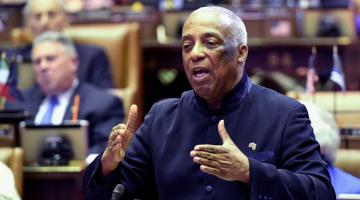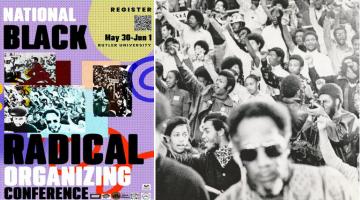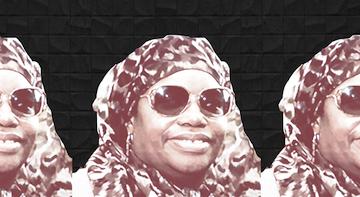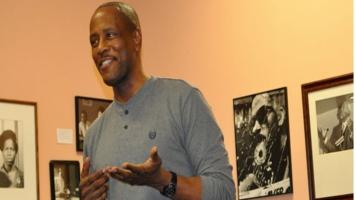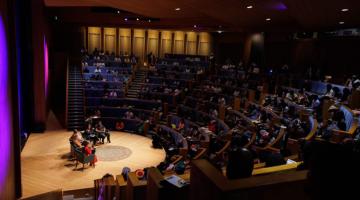For Africans in the U.S., anger is an important first step in mentally emancipating themselves from empire and declaring war on it.
It’s an all-too-familiar sight in any corporate boardroom in this country. Black, female executives sitting primly and properly wearing artificial modest grins that to the educated eye fail to disguise a rumbling internal volcano fueled by crashing waves of white colleagues’ arrogance, incompetence and stupidity that the sisters dare not address or correct with any degree of passion because in this country passion is considered unacceptable “anger” when Black people display it. Newswise reported:
“One barrier to the success of black women in business is the ‘angry black woman’ stereotype, which has long been embedded and perpetuated in American culture through books, movies and television. Now, researchers at the University of Arizona, Hofstra University and the University of British Columbia have found evidence of heightened awareness to anger by black women—reinforcing the existence of the ‘angry black woman’ stereotype. Further, in two experiments, the researchers found that when a black woman displays anger, it actually activates that stereotype in observers and causes her co-workers to view her as less able to lead.”
Longtime awareness of this phenomenon among Black people, even in the absence of academic studies, has understandably prompted reactions. Commentator Savala Nolan said:
“… I, like many Black women, carefully monitor my expressions and body language to make sure I sound calm and reasonable, calibrating myself into a narrow register designed not to scare or offend people in power. It's exhausting. It's dehumanizing. It cuts into my sense of worth and wellbeing. I can't say for sure that it contributes to my anxiety — something I've lived with since I was a teenager — but anxiety is, in part, a feeling of unease or uncertainty about how things will go, a sense that you aren't totally safe, and the ABW caricature puts endless pressure on me to perform niceness in order to stay nominally safe and likable in a world that doesn't particularly like or protect Black women and girls. How could this not feed my chronic sense of uncertainty and unease?”
The degree of conformity and code-switching varies widely, from those who make unavoidable minor adjustments to their conduct to those who enthusiastically skin and grin for white folks. One commentator even suggested there are: “…age-old rules Black Americans have long tried to observe, which, at their core, hold to this simple premise: do NOT give white folks an opportunity to question your integrity and professionalism.” Those unencumbered by bourgeois thinking respond to that supposed rule by declaring: “I don’t give a %$# what them crackers think of me”- and the ancestors who struck solid blows for liberation would agree with them.
Whether enslaved Africans were destroying the plantation farming equipment, burning crops or planning insurrections, furthest from their minds was the idea of suppressing their anger to avoid the ire of their oppressors. Likewise, in more recent history, not only did Malcolm X and proponents of Black Power decline to hide their anger, but they also honorably and righteously put it on full display.
The perceived need to ingratiate oneself to a dominant white society occurs when there is a perception that one belongs to it or aspires to belong to it. Enslaved Africans who aspired to residence in the master’s house had to satisfy the master that they were “safe.” The emphasis on respectability and maintaining a non-threatening appearance during the early phases of the Civil Rights Movement was driven in large measure by an implicit desire for integration. In the years that followed, beneficiaries of that movement with hopes of climbing the corporate or government ladders strive daily to avoid being perceived as angry and therefore threatening.
However, Dr. Martin Luther King, Jr. was an honest man, and not surprisingly he ultimately came to conclude:
“We have fought hard and long for integration, as I believe we should have, and I know that we will win. But I’ve come to believe we’re integrating into a burning house.”
Thereafter, King’s commitment was not so much to integration, but instead to a “revolution of values” – or a fundamental transformation of the country into which he was integrating his people. His calls for an end to imperialist war, white supremacy and the concentration of wealth in the hands of a few earned him repression of the most severe kind, and ultimately his death. Obviously, his approach could in no way be regarded as appeasement.
King’s more precise analysis led him to conclude intuitively if not consciously that those who feared Black anger, and who had the power to do something about it were not “white folks.” Yes, many of them carry the baggage of white guilt and stereotypes that trigger irrational responses to Black people’s normal human emotions. But at the same time there are also many white people like John Brown who understand and embrace Black anger. Those most threatened by the anger of the oppressed are those who are responsible for the oppression and who use racial tension to distract and divert righteous anger. Thus, when King redirected his attacks away from southern bigots and aimed them instead at Wall Street, the military-industrial complex, and the political establishment, he was immediately characterized not as a harmless preacher, but instead as a dangerous subversive worthy of death.
If a person is highly stressed by the challenges of avoiding the angry Black person tag, it is evidence of that person’s perceptions that they have a stake in the system, and as long as they retain that belief, they will not seriously consider prospects for revolution. They will stop fretting about how those with power perceive them only when they abandon aspirations to achieve leadership roles in the empire that the powerful control. For Africans in this country, going a step further and declaring war on the empire requires a different way of thinking. It requires an understanding that they don’t need the empire because membership in a community antagonistic to the empire is more beneficial. Useful to the achievement of this different frame of mind is an analysis by Black Panther Party co-founder Huey P. Newton that was way ahead of its time.
Newton explained: “…the world’s people form a collection of communities, all dominated or controlled, either directly or indirectly, by the United States, by those few who rule the United States.” He went on to say: “We are a large collection of communities who can unite and fight together against our common enemy. The United States’ domination over all our territories equals a reactionary (in opposition to the interests of all) set of circumstances among our communities. Reactionary Intercommunalism. We can transform these circumstances to all our benefit: Revolutionary Intercommunalism.”
As forces in Niger make moves to sever military ties with the U.S., and as other forces in Haiti agitate and destabilize U.S. domination of their country, and as still other forces around the world push back against Zionism and Imperialism in reaction to the crimes in Gaza, there is perhaps no better time than the present to put Newton’s revolutionary intercommunalist ideas into effect. Newton admonished: “…we should not let the reactionaries of the world be the only ones communicating across the waters and masses of land. We have a common interest to serve, and therefore we can learn from each other.”
There has certainly been increased global communication by and among struggling people worldwide, but the challenge to revolutionaries is to remember that not everyone who voted “uncommitted” to protest the genocide in Gaza has also effected a mental emancipation from the empire. Such individuals march for a ceasefire with misguided expectations that the Democratic Party will hear them, have an epiphany and then beat their swords into plowshares.
The task is to channel the current, spontaneous global resistance to imperialism into an organized force that not only makes strategic moves against the empire, but which also removes the shackles from the minds of well-meaning people who retain their allegiance to imperialism without really understanding why they do so, or even understanding what the empire is.
Oppressed people, and African people in particular have every right to be angry. But many of them need assistance with directing that anger squarely at the oppressive forces that caused it in the first place.
Mark P. Fancher is an attorney and writer. He can be contacted at mfancher@comcast.net.

